Utopia, Lost
City of Poets
Photos from a family album reveal a city that perhaps used to exist. Sara Rajaei anchors these images not fully in reality but instead extracts the poetry from them.
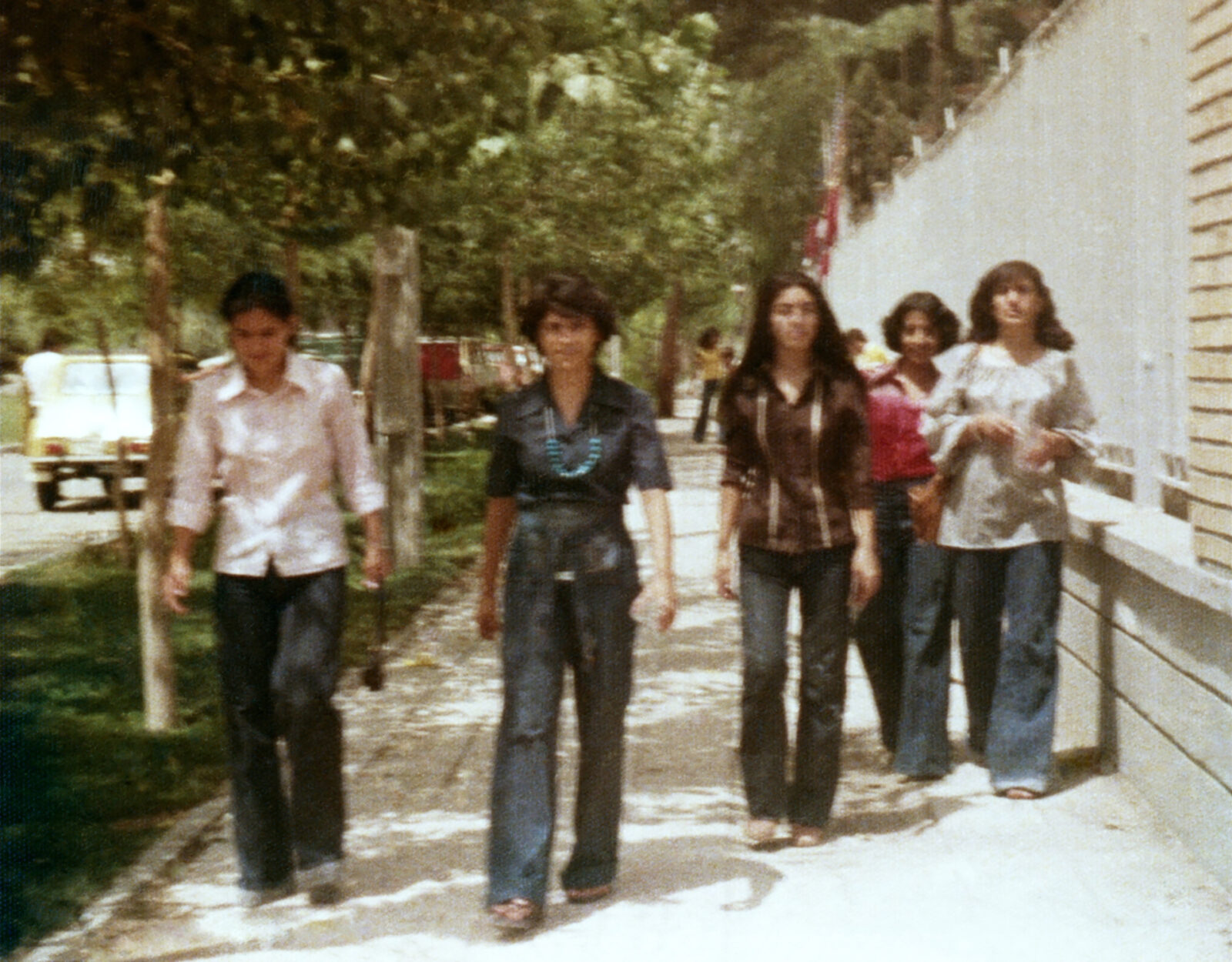
Cityscapes that feel familiar yet difficult to pinpoint on a map. A voice lays out the setting: this is the city of poets, where all the streets are named after such figures, and the locals recite poetry instead of simply giving out house addresses. They started building it twenty years before the war, the voice lets on, to accommodate workers at the refinery and university personnel. Which war? We are never told, but we learn its aftermath changed everything. The streets lost their names and the poets became but a memory.
In City of Poets, Sara Rajaei builds an allegorical narrative on top of real archival footage, employing a photo-roman structure that takes us through the history of a place that is hard to identify—perhaps it’s one, perhaps it’s many. The name is never uttered, but hints such as the narrator changing halfway through from English to Farsi progressively take us on a lead that what we’re seeing may be, at least in part, a pre-Revolution Iran. These images of bustling markets and intense modernisation, of women in the workplace, almost never seen veiled, bear political contexts and charged tensions of a “world before”—but the change in regime is only alluded to.
As our guiding voice recounts, this utopia seems to exist outside the restraints of time and space: a dream gone by, if it ever existed at all, and a place where art was still an important aspect of communal existence. Rajaei enhances a tone of universality in her story, creating an emotional space that reels you in through its familiarity and lack of specificity. The fondness with which this voice remembers the city indicates that it is one of a kind, yet its fatal decline into the unpoetic—because of change, war, or upheaval—has been shared by many.
As we browse through these photographic moments of city life, the outside turns into the inside, and the universal deviates towards the personal. When our storyteller shifts to Farsi and shares memories of their childhood, we no longer see busy streets or other instances of public life. Instead, we slowly zoom in on the small, mundane moments of one family.
The line between allegory and reality is blurred into a hauntingly poetic memory of a mulberry tree and a mother, with Rajaei seemingly tapping into autobiographical material as first-person narration takes over. The change to Farsi and the growing use of “I”s make us understand these images come from the director’s own childhood and family, rendered all the more emotional through their honest gazes looking into the camera and inviting a privileged, intimate peek into their day-to-day life. There’s something incredibly moving in these snapshots. Perhaps it’s the intense interest in people and faces enhanced by Rajaei’s montage. Or it’s just that endearing thought that these pictures caught unawares were rescued from time and became something else.
It’s never entirely acknowledged, however, that these images do belong to the filmmaker’s own family, which creates a certain level of confusion—in part because the first archival photographs seem to come from many different sources. That this one family is not also found footage (or vice versa, that the other images are not family archives) is more of a gut feeling. This mystery is a potent and moving device when it serves the emotional space and a sense of universality, but it also proves unsatisfactory at times when it makes the viewer unsure about how to relate to the images.
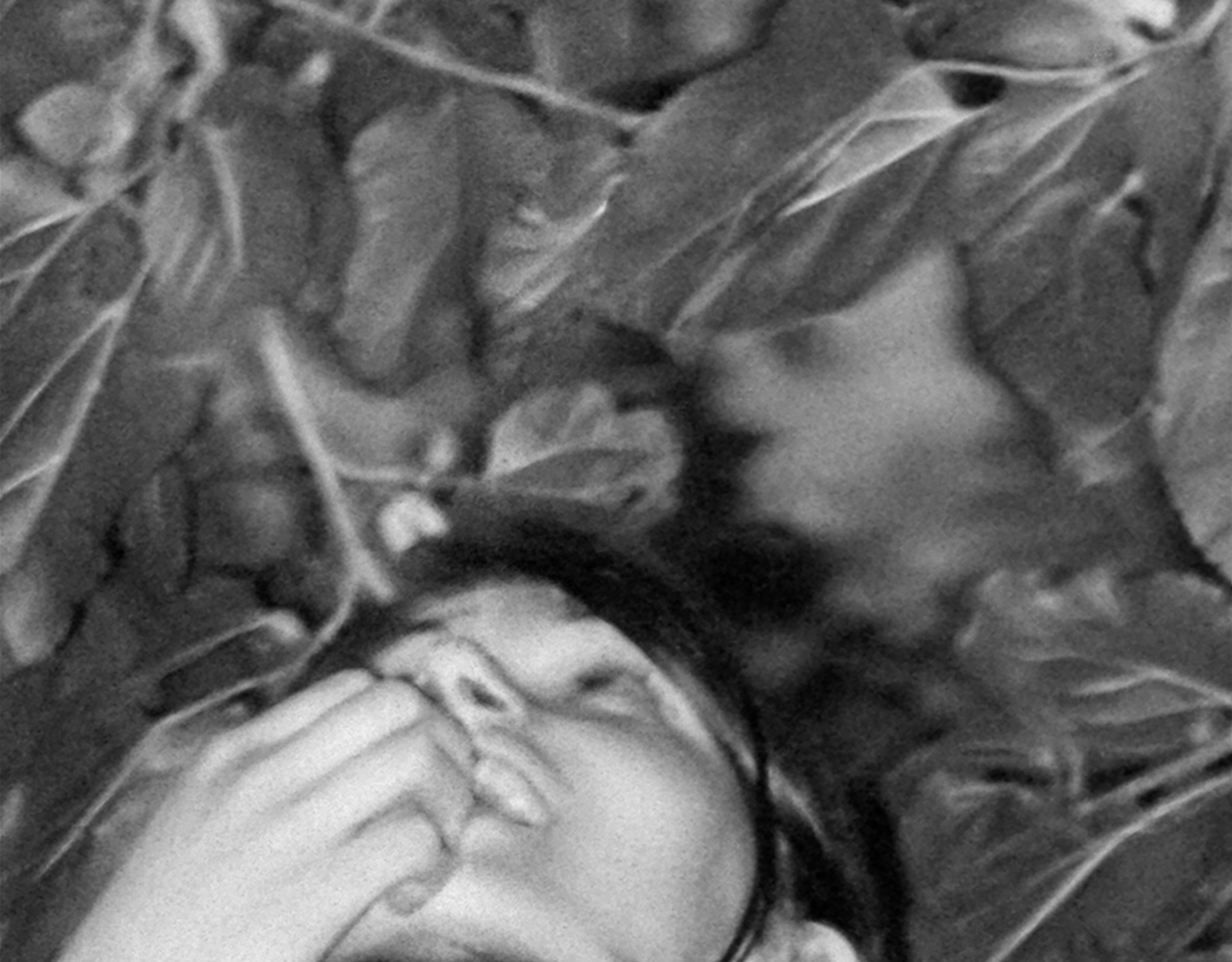
City of Poets is incredibly efficient in telling a story solely through still images (and small diaporama moments where there’s discreet animation). This achievement, however, also does the film a disservice by allowing a separate story to emerge from the visual archives, parallel to the spoken narrative. As much as the disjunction between image and sound is meant to sustain the allegorical nature of the voice-over, there’s an evident documentary value in the photographs that distracts from the more metaphorical meaning.
The concreteness of these images and their socio-economic and historical contexts often keep the viewer too grounded in reality, particularly in the first half of the film. These pictures of new factories, female workers, and families walking through parks create a palpable reality you need to know more about. We see how fashions change, from clothes to hair to mores. It’s easier to understand these archives as historical records of a pre-Revolution Iran than as pieces of an allegorical world. In fact, Rajaei seems to be very aware of the “power” that these documents hold by themselves, as, from time to time, she lingers over specific pictures without any commentary, although not enough before the allegory distracts again.
Rajaei’s choice not to fully anchor these images in reality and to extract only the poetry from them is, in part, enjoyable. The absence of a clear context throws the viewer into an unknown territory, and disorientation makes one think. However, it’s easy for the universal to steer into the generic. Despite its public life segment giving the impression of a world known by all of us, the personal seems to arrive slightly too late within City of Poets for it to take solid roots. The English-spoken sequences, in particular, because they contrast with the heavy, hyper-poetic autobiographical elements, don’t seem to reach the same profound emotional dimension.
This is not to say that the narrating voice should need to perform its own foreignness and self-define only through Farsi. The notion that a native language is a more natural tool for creating an emotional space is not always true—obviously, various concepts, like poetry, musicality, degrees of attachment, interest, or familiarity, can make any other language someone’s preferred choice for expression, if you will, the language that is closest to their soul.
The problem is rather that Rajaei’s shift from a general space to a concentric one creates an imbalance where the same level of connection cannot be sustained all throughout the film. In spite of the interest in the photographs’ historical realities, there transpires less attachment to them—their potential as documents that do not need to be embellished is scraped only thinly, ending up like an obstacle, at best, a framework, that we need to surpass so as to get to the real emotional stake. The first segment veers into a story anyone could have told, while the other emanates such specificity and affection that it becomes strikingly memorable.
Sara Rajaei’s reworking of found footage is hindered by its own elusiveness. A lack of contextualisation upsets the delicate balance between the poetic and the real. Yet, as much as we struggle to piece together these images about which we have little information, there are hints of familiarity that strike a chord within all of us. Avoiding overt political commentary but speaking of change and mourning the loss of poetry above all makes an interesting point as it relates to the status and currency of the artist today. The cultural freedoms of this utopian city, so highly prized and then slowly lost, refer not only to Iran but today’s society as a whole.
If in this mythical city, the poet once used to be held in the highest of regards, the currency of the contemporary poet has become almost irrelevant in a society that underfunds the arts. Rajaei incites some wishful thinking in a discouraging world: will the poets of today ever get their name on a street?

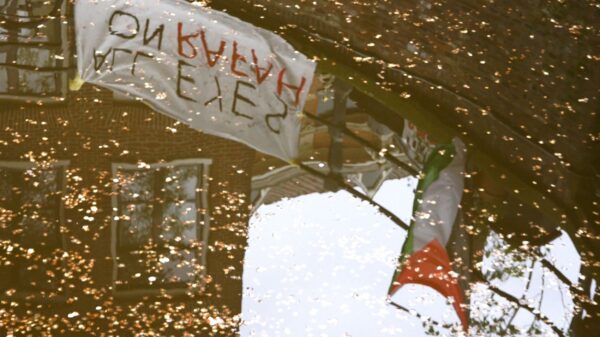
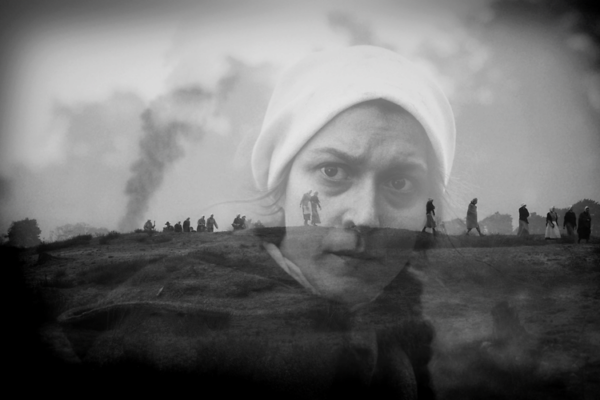
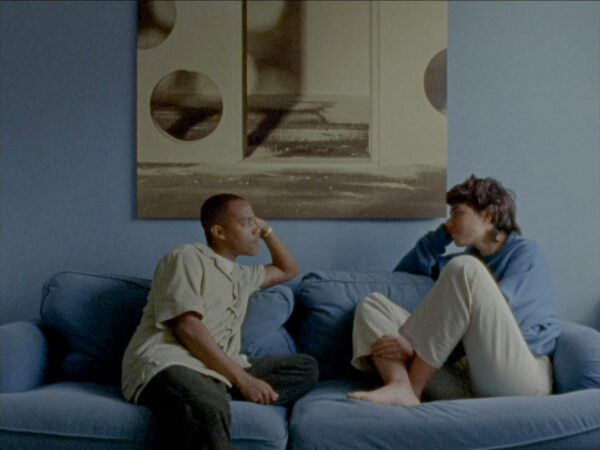

There are no comments yet, be the first!